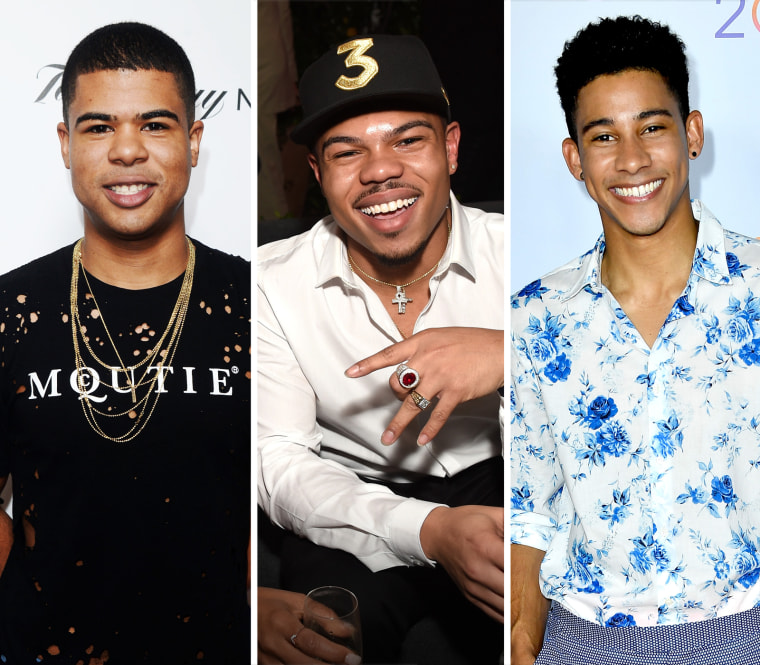iLoveMakonnen made headlines in January. A month later, it was Taylor Bennett’s turn. And most recently, Keiynan Lonsdale did the same.
In the first half of 2017, these three black male celebrities made headlines for declaring publicly who they are and how they love. But as soon as the ink was dry on their "coming out" stories, there was talk of them being the next role models for gay and bisexual black men.

The scenario is a familiar one. When news broke that John Amaechi, Jason Collins, Michael Sam and Derrick Gordon had come out out publicly, numerous articles suggested that they, automatically, were role models for a segment of society allegedly lacking such figures.
But are they truly role models? Should this weighty label be thrust upon them for simply declaring their truth publicly?
Charles Stephens, executive director of The Counter Narrative Project, touts the benefits of these black celebrities embracing their truth and sharing it with the public.
“Never before have we seen the influence of black gay men in popular culture being so strong,” he told NBC Out. “Any black gay or bisexual man that embraces being open about his sexual identity has the power to inspire others.”
This is especially important, according to Stephens, because there is still a lack of empathy among the broader public for black queer men.
“Black gay and bisexual men in the public eye, especially entertainers, can use their platforms to at least symbolically bring awareness to the issues impacting our community,” he explained. “Along with the challenges we face, black gay and bisexual entertainers can bring awareness to the strengths of our community and our incredible movement in history.”
The label of role model, however, often carries an almost moral association, according to Stephens. He suggests people who choose to look to celebrities like iLoveMakonnen, Taylor Bennett and Keiynan Lonsdale as role models focus less on their perfection and more on their humanity.
Related: 11 Out Black Change Makers You Should Know
E. Patrick Johnson, chair of the Department of African American Studies at Northwestern University, said it will take more than these out celebrities to spread awareness and acceptance, and we should not burden these men with being role models.
“As the old folks use to say, 'It takes a village,'” he told NBC Out. “Sure, it takes people being out in the political way. It also takes people who aren’t necessarily gay but who open up a space for people to be comfortable with who they are."
“It takes the straight pastor standing up in the pulpit on Sunday morning and saying, ‘Y’all stop bashing gay folks,’” he added. “Everybody has to be involved in being role models. How we define being a role model has to manifest itself –- not by us calling it so because someone declares his truth.”
In addition to public figures coming out, straight allies standing up and visibility of nuanced queer characters in the media, Johnson also called on more academics to produce scholarly material that focuses on the lives of LGBTQ people.
Stephens said where we are now in terms of LGBTQ awareness and acceptance has been years in the making, and he sees today's young gay and bisexual black men taking cues from trailblazers of yesteryear.
“One of the major contributions of African-American Generation X culture has been pushing the envelop around sexuality in ways that I hope we began to grapple with in a more critical way,” he said. “It was this generation that resisted the approach taken by James Baldwin and Bayard Rustin -- this sort of ‘My sexuality is not a part of my identity’ approach.”
Stephens noted that his organization, The Counter Narrative Project, seeks to amplify the voices of black gay and bisexual men. And by empowering them to share their stories, the organization hopes to inspire other members of the black queer community to embrace their truth.
